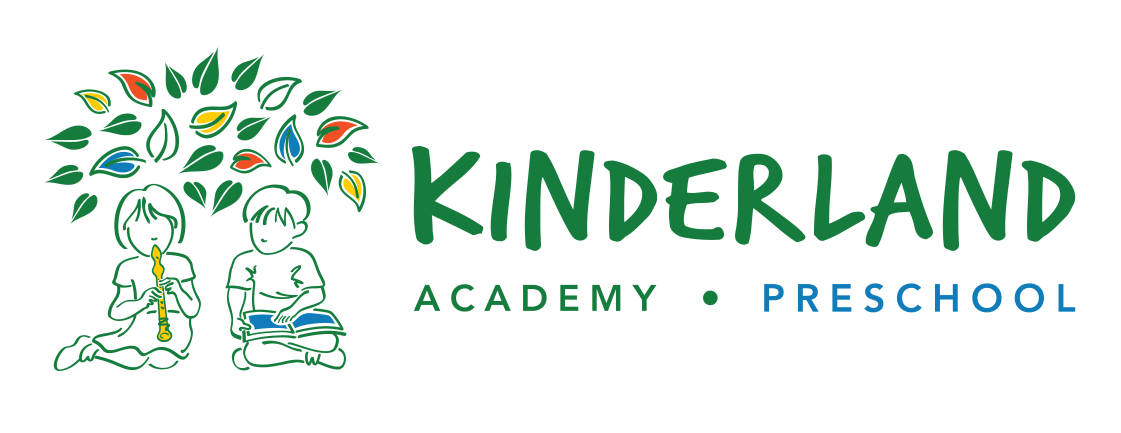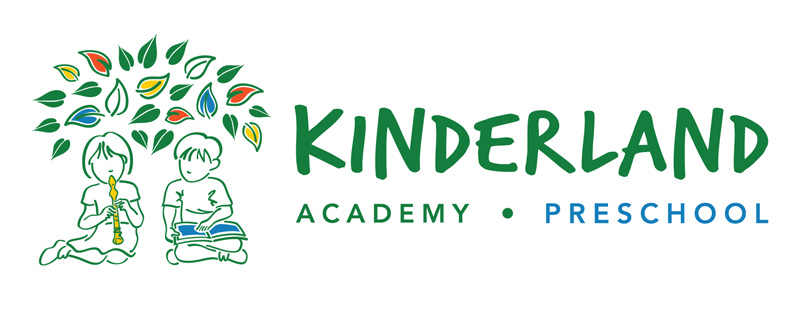As we approach a new school year, it is time to help our little ones get ready for this exciting chapter in their lives. Starting preschool is a major milestone for both children and parents, marking the beginning of an education journey. While it is an exciting time, it can also be filled with nervousness and uncertainty. However, with the right approach, this transition can be made smoother, ensuring your child begins learning with confidence.
At Kinderland, we recognise the challenges that come with this change. To make this transition as seamless as possible, we have compiled some helpful tips to support you and your child as they embark on their preschool adventure.
Talking about the preschool your child will be attending helps ease anxiety and builds excitement. As soon as you have decided on the preschool start discussing it casually with your child. Mention the school’s name, talk about their teachers, and describe the classroom setting. Reassure your child that it is normal to feel both excited and a little nervous. This simple introduction will make the concept of school more familiar and less daunting.
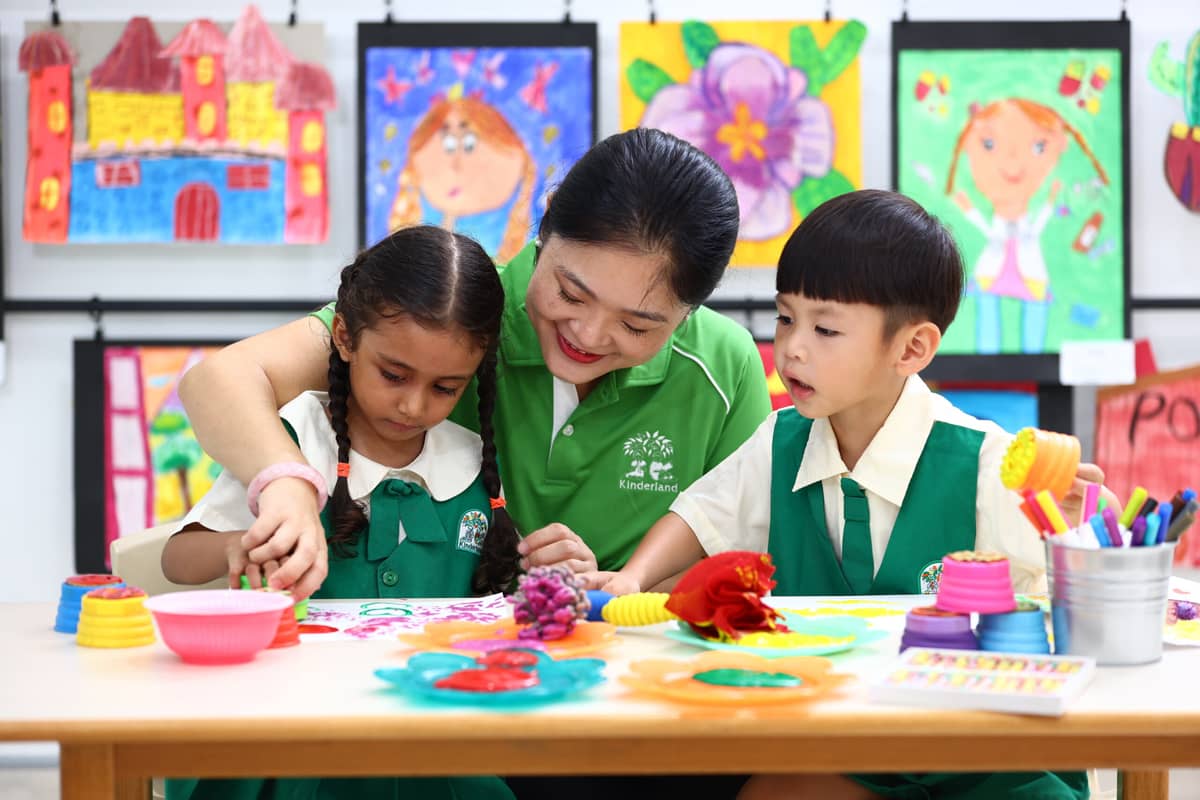
Encourage creativity at home by recreating school art projects, setting routines, showcasing work, and involving kids in cleanup to mirror the school routine
2. Foster Independence Through Small Tasks
Developing independence is a key milestone in preschool readiness. At home, encourage your child to take on small responsibilities such as put on their clothes, wearing their shoes, or carrying their own school bag. These experiences will boost their confidence and make them more comfortable with the independent routines they will encounter when going to preschool. At Kinderland, we support this growth by helping children manage their daily tasks, from mealtime routines to self-care.
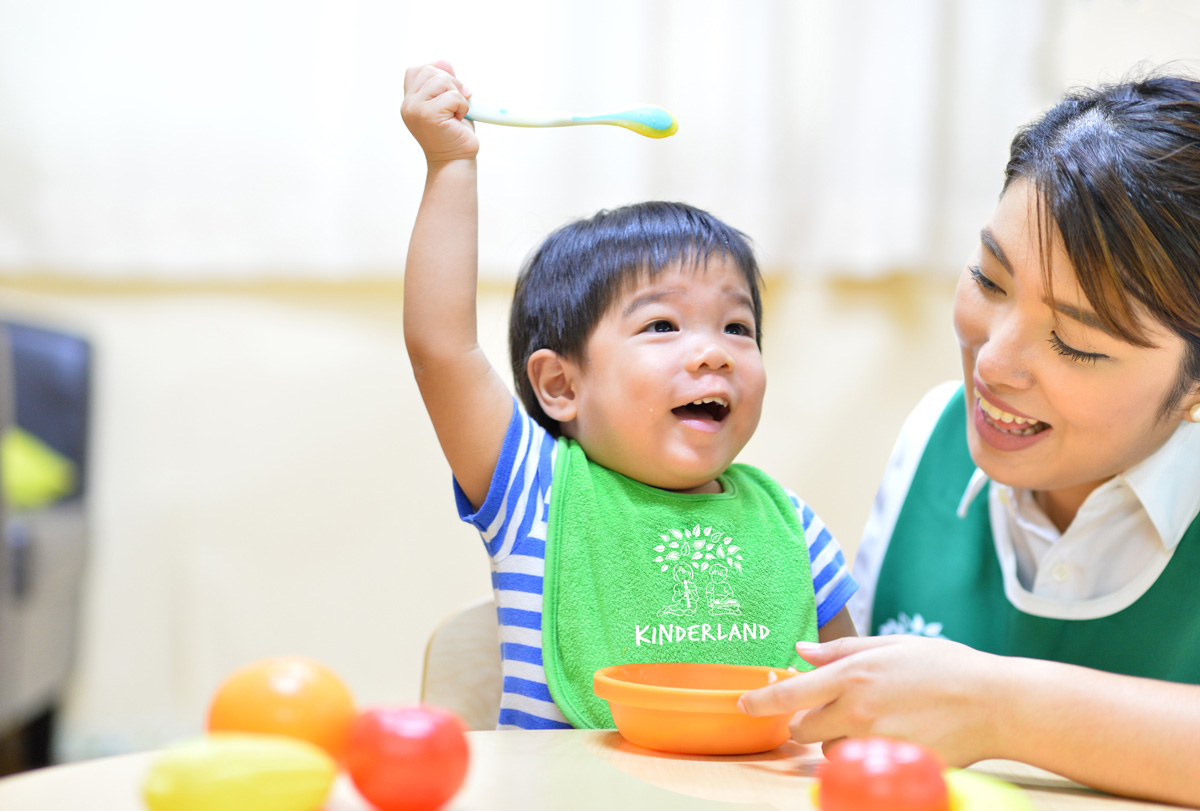
Children learn independence by self-feeding nutritious dishes carefully designed by an inhouse Nutritionist at Kinderland
3. Gradual Separation to Build Confidence
For many toddlers, preschool may be the first time they are away from home for extended periods. Prepare them for this by introducing short, positive separations in familiar settings can help them manage the emotional aspect of being apart. It is encouraged to verbalise to your child the reason for you to be away and how long you would take to return. This practice helps them understand that while separations happen, reunions follow. When preschool starts, your child will feel more secure and less anxious about being apart from you.
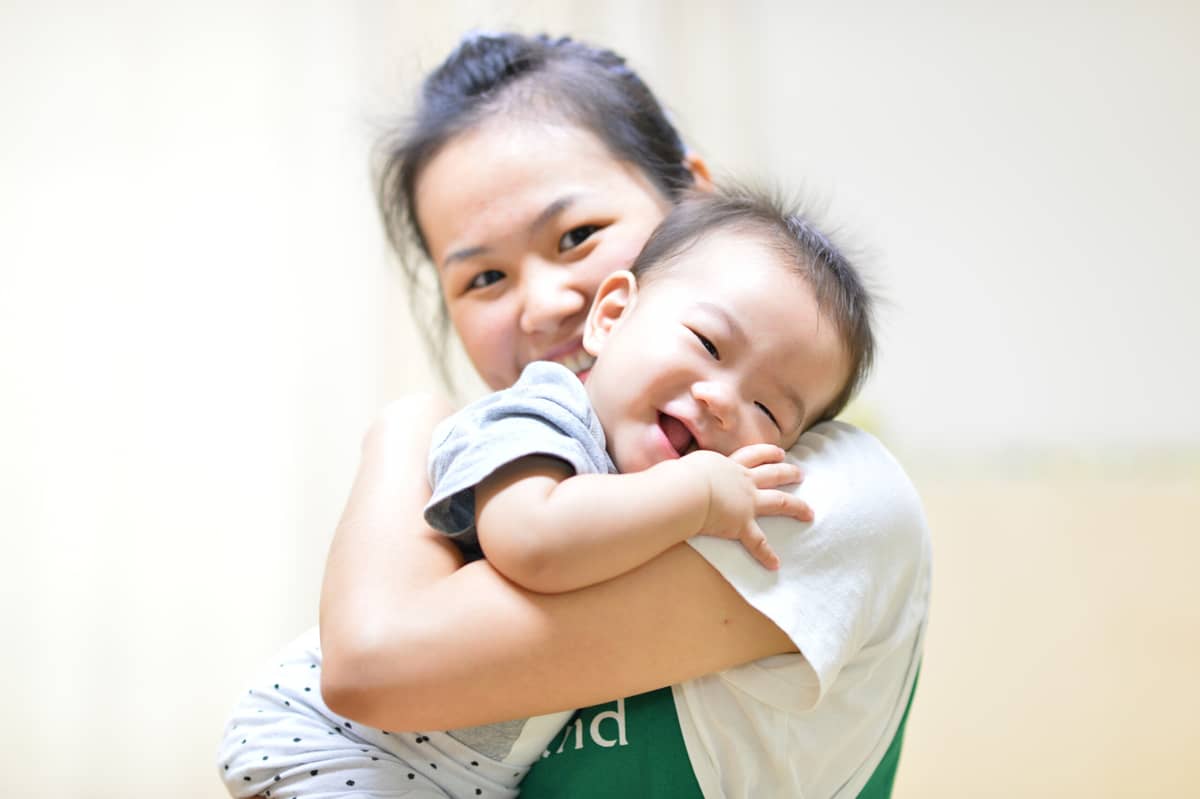
Children receive tender love and care from day one in preschool and infant care, which helps soothe their separation anxiety
4. Encourage Social Interaction
Preschool is a social environment where children learn to interact with others. You can support your child’s social development by encouraging playdates, visits to parks, or group activities. If they feel shy or unsure how to approach a new friend, equip them with simple phrases like “May I play with you?” to help them build social skills. If you know other children who will attend the same preschool, organising meetups before school starts can ease both your child’s transition and provide you with a support system.
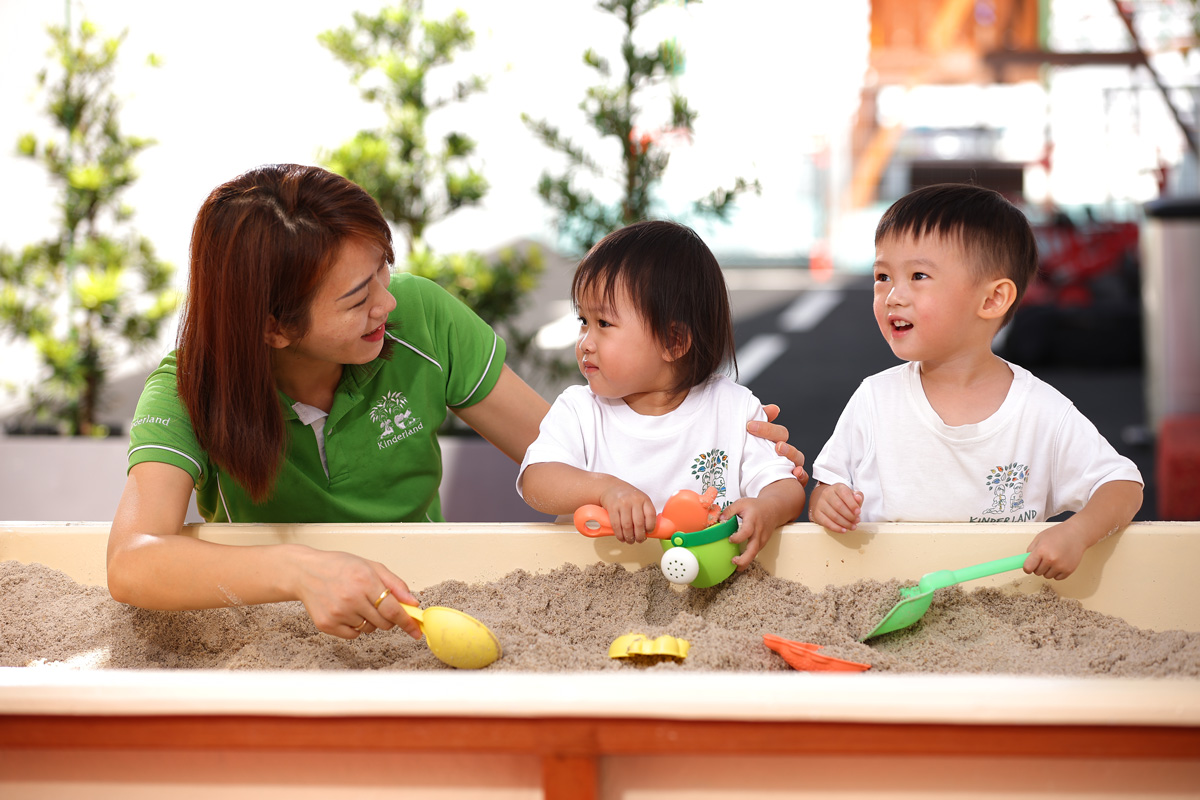
Interactive outdoor play encourages social engagement and interaction in young children, helping them ease separation anxiety
5. Establish a School Routine Early
As the new school year approaches, gradually establish a routine that mirrors their school schedule. Start aligning your child’s wake-up time, meals, and bedtimes with the preschool schedule. This helps ease them into the rhythm of school life. Bedtime routines, such as reading or storytelling, can replace screen time and create a calming environment that helps your child wind down before sleep. These habits will help your child adjust more easily once school starts.

Preparing for the school routine: Small habits like mealtimes and cleaning up help children ease into the rhythm of school life with confidence and independence.
6. Read Preschool-Themed Books
Reading preschool-oriented books with your child is another excellent way to introduce the concept of school. These stories often feature characters going through similar experiences, which can help ease any apprehensions your child may have. Visit the local library or bookstore to find books that focus on starting preschool. This activity will not only be enjoyable but will also help them feel more connected to the idea of school.
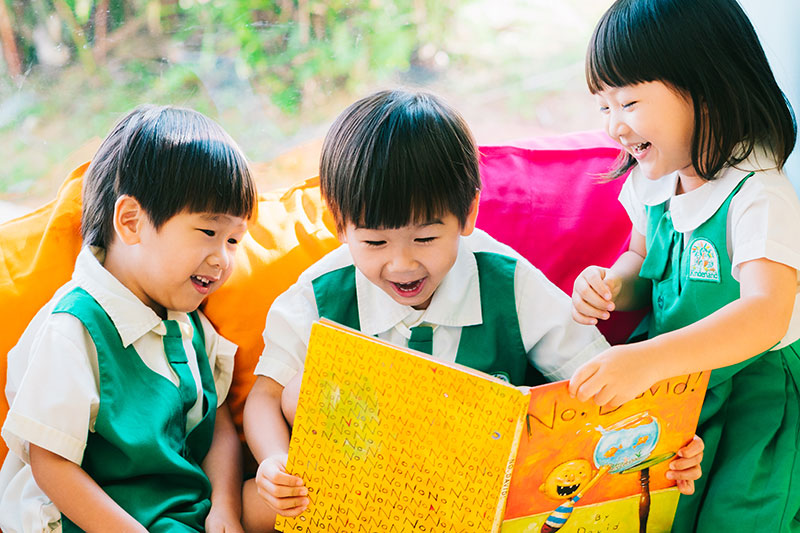
Build the child’s social awareness by reading books that reflects possible scenario in a preschool environment
7. Communicate Early and Often with Educators
Building a positive relationship with your child’s educator is key to a successful preschool experience. Establish open communication from the start—share information about your child’s likes, dislikes, and routines. At Kinderland, we prioritise close communication between parents and educators, ensuring that your child’s needs are understood and supported. By working together, we can ensure your child feels safe and confident in their new environment.

Our parenting mobile app, HavParent, allows regular updates and parent-teacher collaboration between teachers and parents
Conclusion
Preparing for a new school year can feel overwhelming, but with thoughtful planning and support, the transition can be a positive and exciting experience for your child. By gradually introducing them to the concept of school, fostering independence, and establishing strong communication with their educators, you are laying the foundation for a successful and confident transition.
At Kinderland, parents can rest assured that our full-day programme is thoughtfully crafted to foster both academic and emotional development. We combine interactive learning with creative activities to inspire young minds. Through a balanced routine of structured lessons, playtime, nutritious meals, and nap time, we provide the support children need to thrive in every aspect of their growth.
Together, let us make this school year a journey of growth, learning, and cherished memories at Kinderland!
